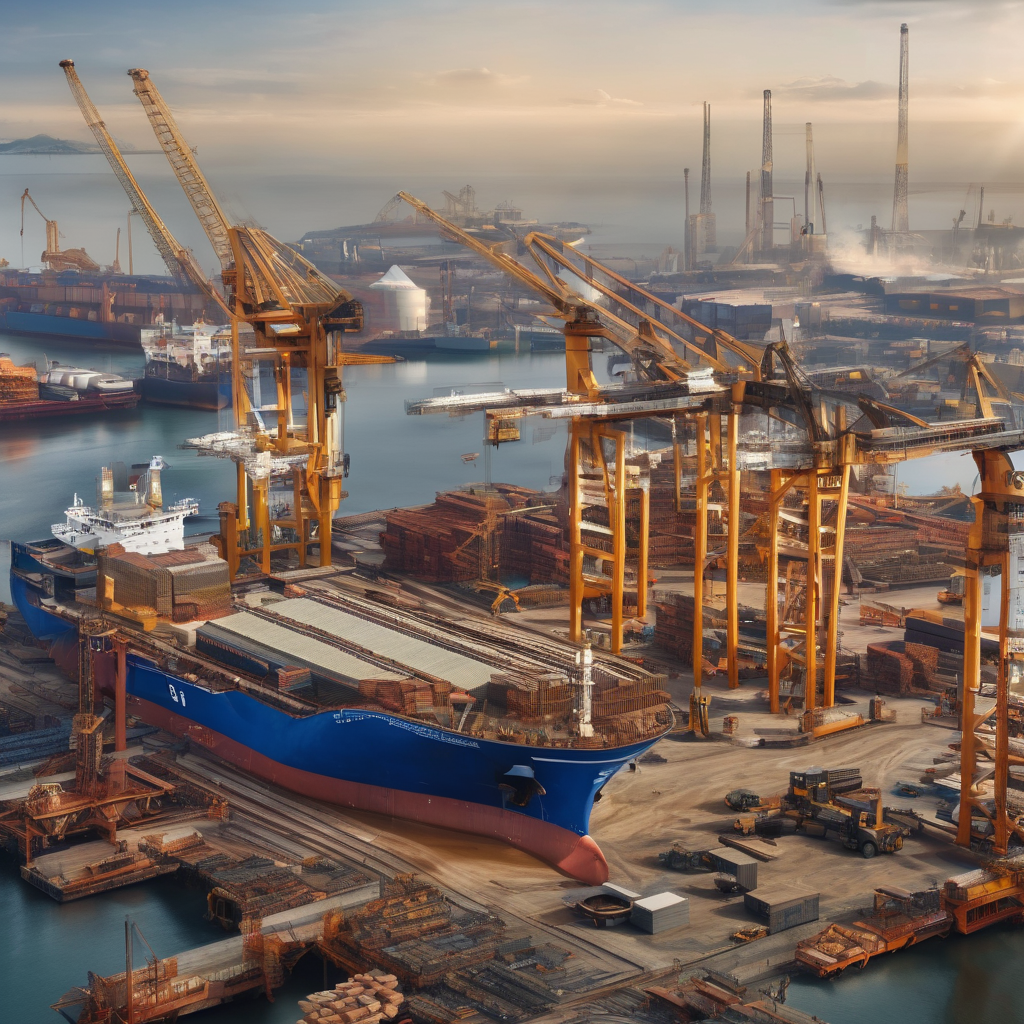China’s recent sanctions against U.S.-linked units of South Korean shipbuilder Hanwha Ocean have sparked significant alarm regarding the future of shipbuilding collaboration between Seoul and Washington. Announced by Beijing, these sanctions pose a threat to essential supplies of Chinese equipment and materials, potentially hindering South Korea’s ambitious plan to invest $150 billion into revitalizing the U.S. shipbuilding sector. This initiative, referred to as “Make America Shipbuilding Great Again” by South Korean officials, aims to enhance American shipbuilding capabilities to better compete against China’s industry dominance.
These sanctions emerge at a time when both the U.S. and China are instituting new port fees affecting each other’s vessels, further complicating the already tense trade relationship. South Korean officials, including Seok Jong-gun, the Minister of Defense Procurement Program Administration, have emphasized that the sanctions will significantly impact logistics and supply chains vital for Philly Shipyard, which is owned by Hanwha. Seok noted the difficulties in sourcing all necessary materials domestically within the U.S., indicating that reliance on imported components will persist despite these new measures.
Analysts suggest that while the immediate effects of these sanctions may not be drastic, they could signal the potential for more severe actions from China against South Korean shipbuilders collaborating with the U.S. Lawmaker Yu Yong-weon has estimated that Philly Shipyard could incur losses around $60 million over the next two years due to expected supply chain disruptions. The South Korean government perceives these sanctions not just as a trade concern but as a significant threat to national economic security and industrial competitiveness.
In light of these sanctions, Hanwha Ocean has chosen not to comment on the projected financial repercussions but reaffirmed its dedication to offering outstanding maritime services and continuing investments in the U.S. maritime sector. The company operates a shipyard in China’s Shandong province that manufactures critical ship components for its South Korean facility, highlighting the intricate relationship between these two locations.
The U.S. State Department has condemned China’s sanctions as “irresponsible,” citing their potential to disrupt U.S.-South Korean collaboration in bolstering the U.S. shipbuilding industry. The sanctions underscore broader geopolitical tensions, with China’s Ministry of Commerce alleging security risks related to Hanwha’s operations as the rationale for its actions.
Despite these hurdles, there is a strong belief among officials in South Korea and the U.S. in the resilience of their partnership. Strengthening collaborative ties in defense and shipbuilding could ultimately enhance economic security, setting the foundation for a more formidable maritime industry—a sector both countries aim to dominate amidst external pressures. Historical negotiations demonstrate that maintaining open dialogue and adaptability will be crucial in navigating these challenges and maximizing existing investment opportunities.
While immediate obstacles arise from the current geopolitical landscape, there remains a hopeful outlook that renewed commitments to cooperation could lead to greater security and economic stability for both nations.
